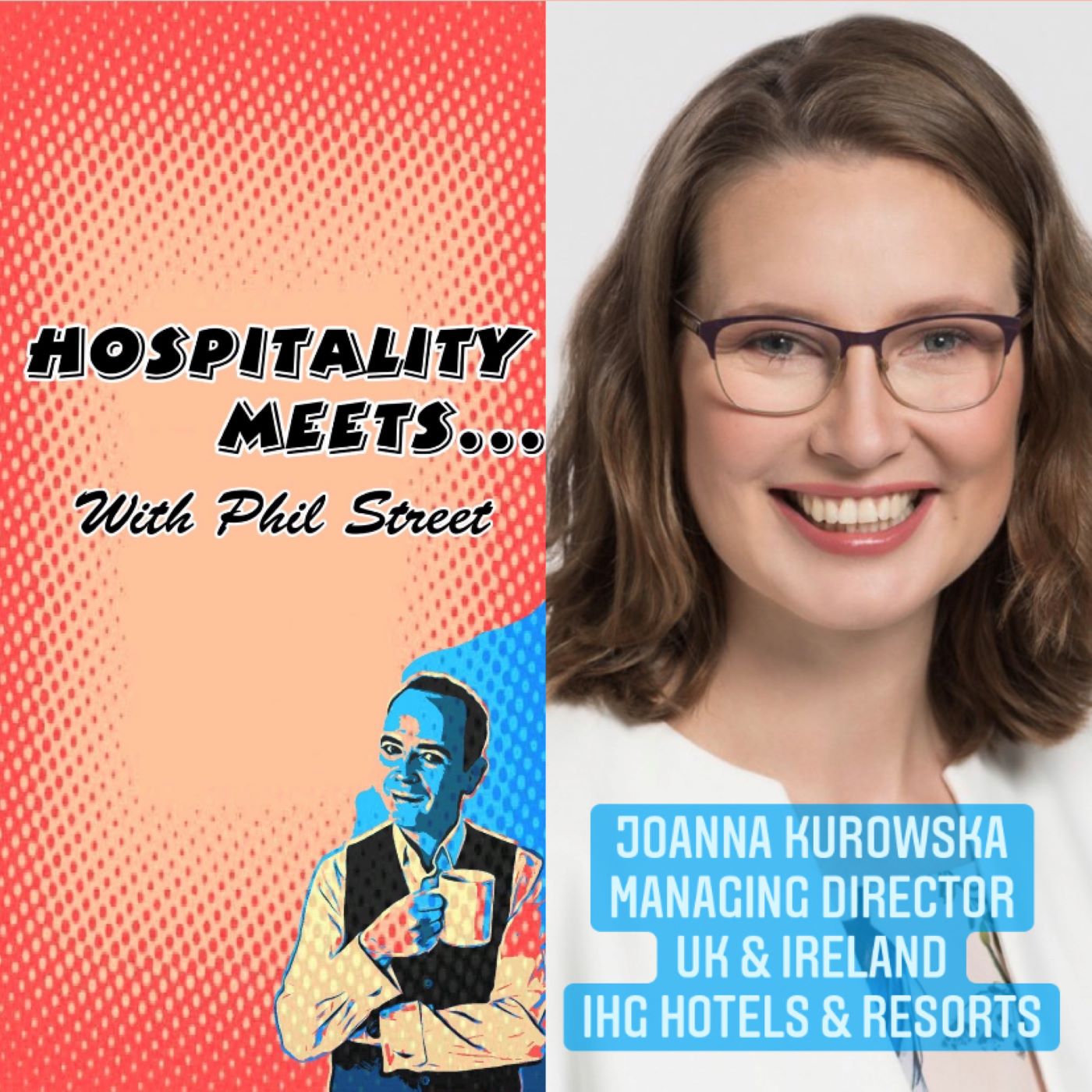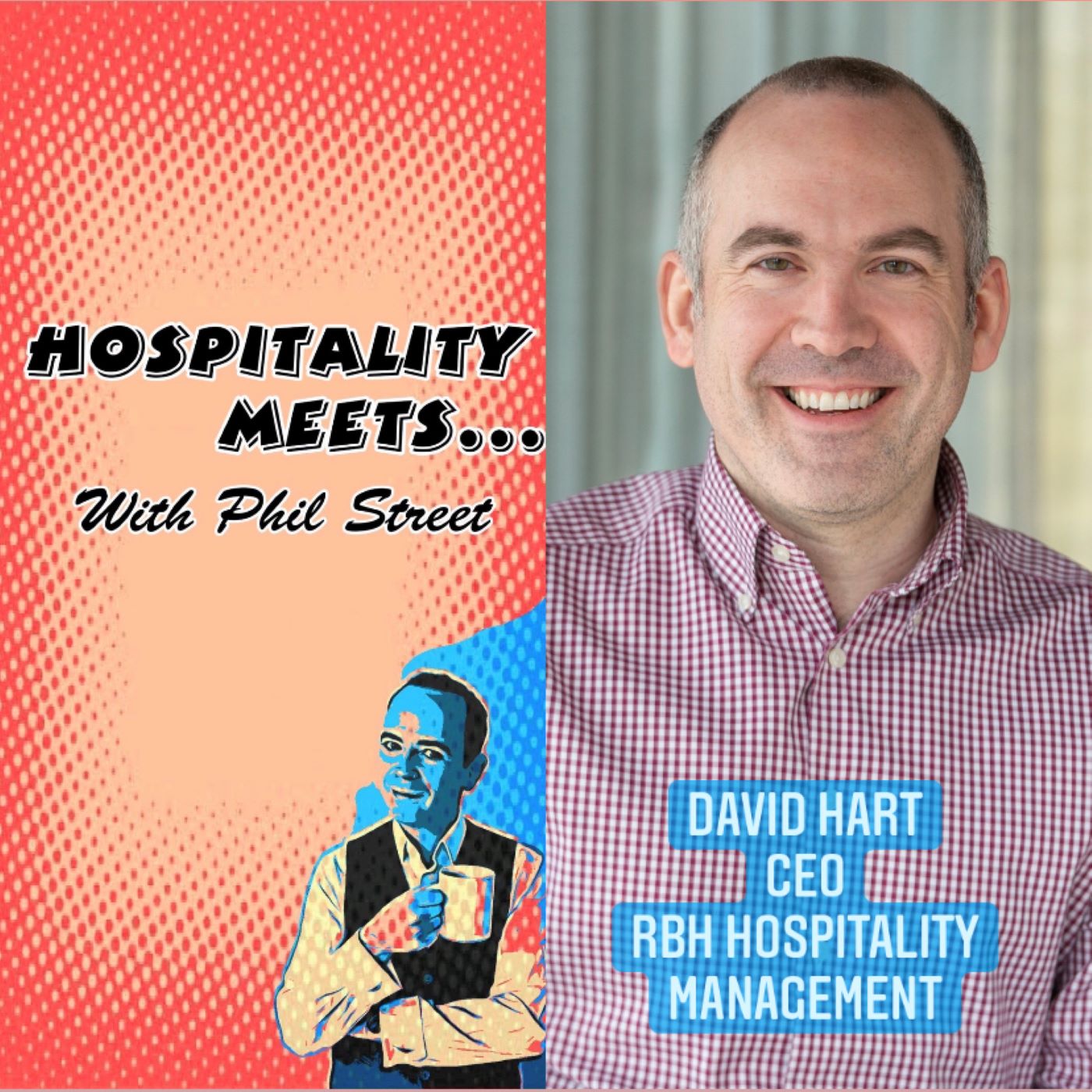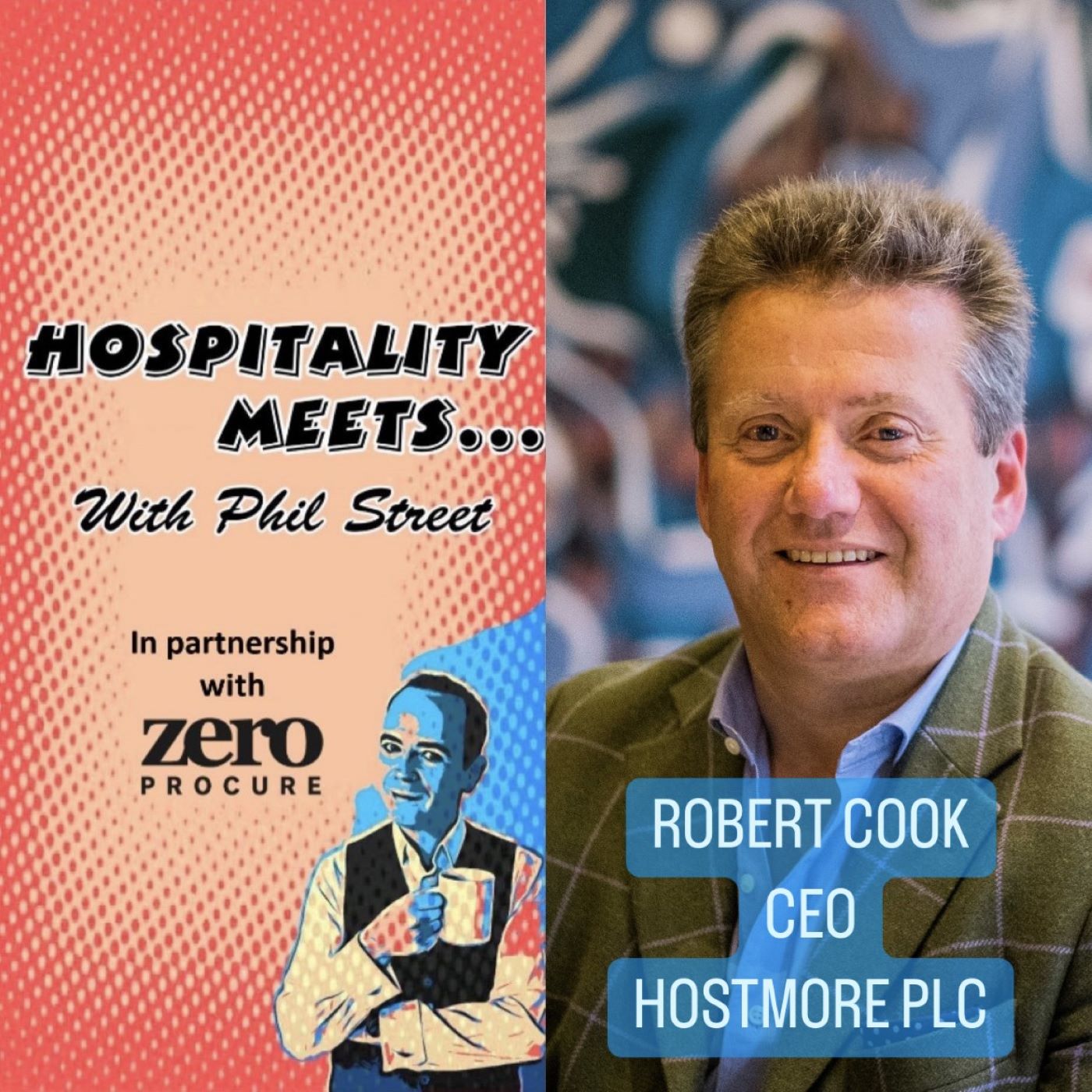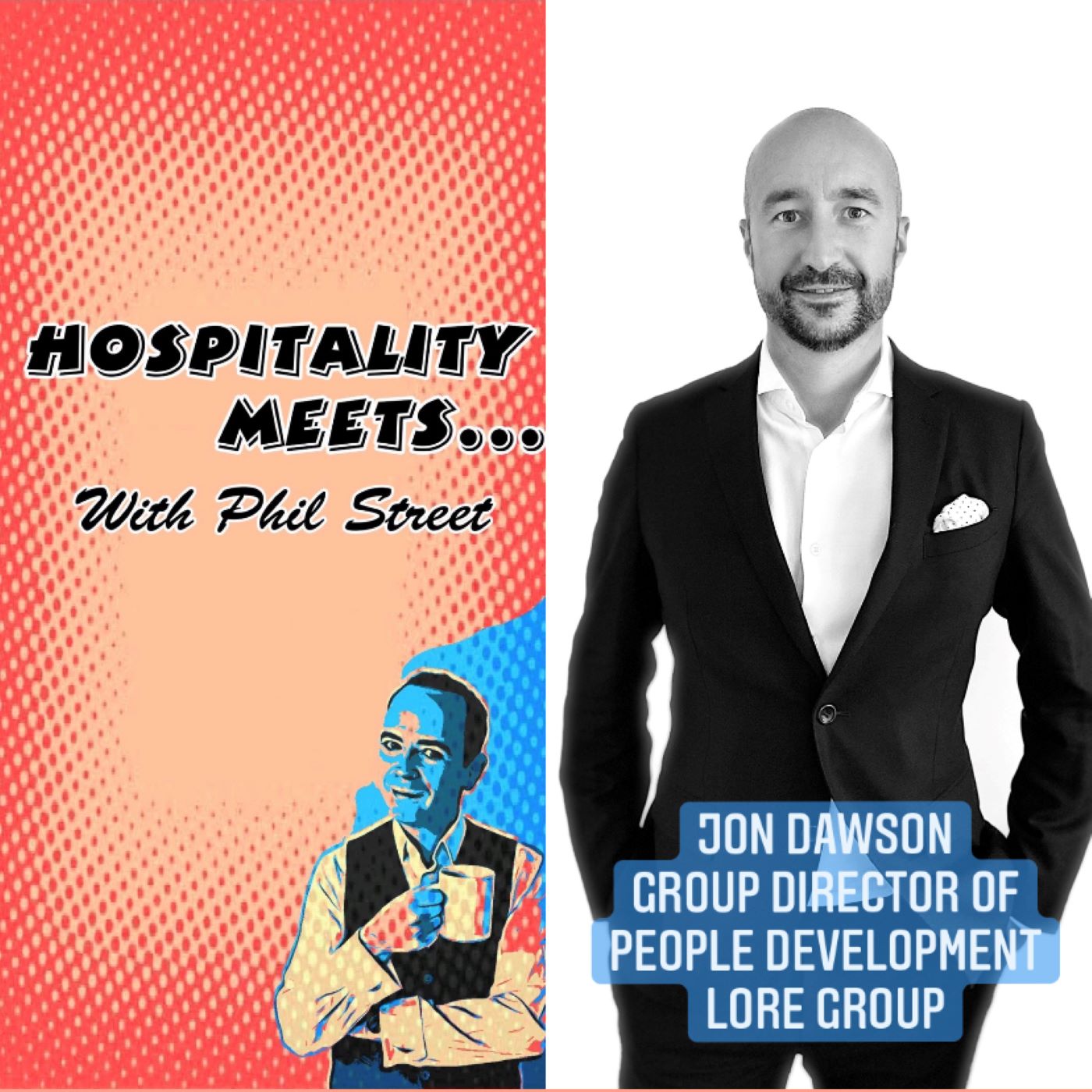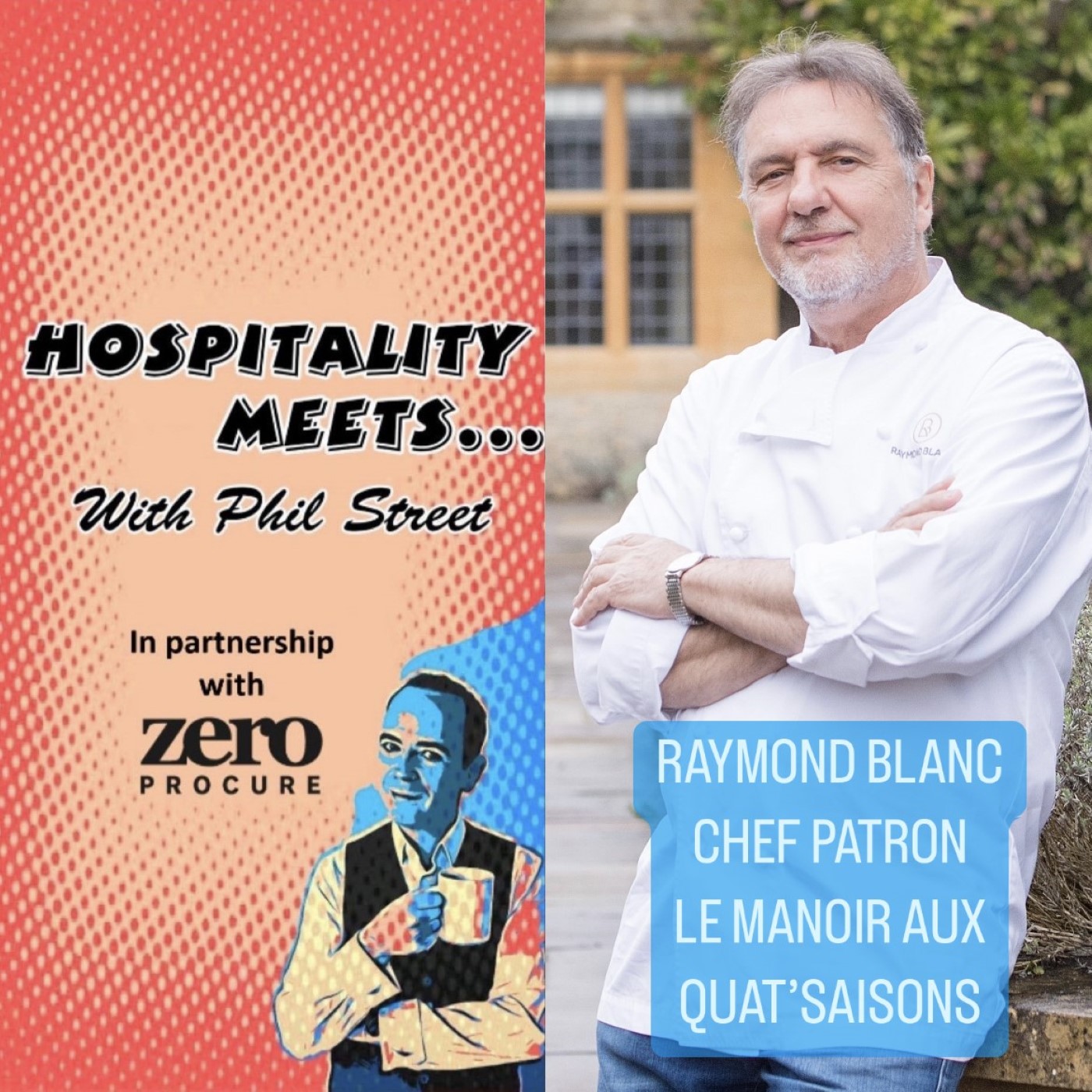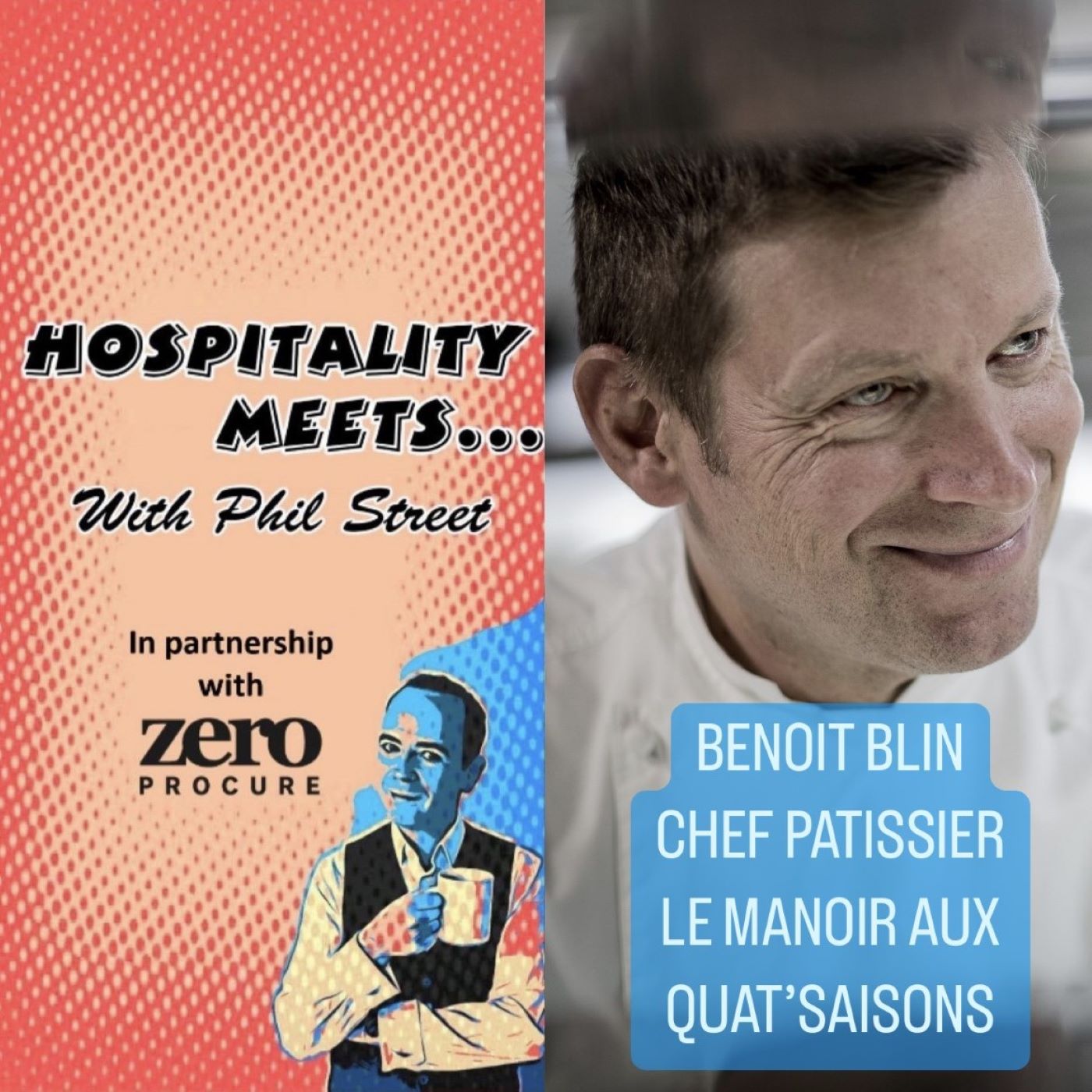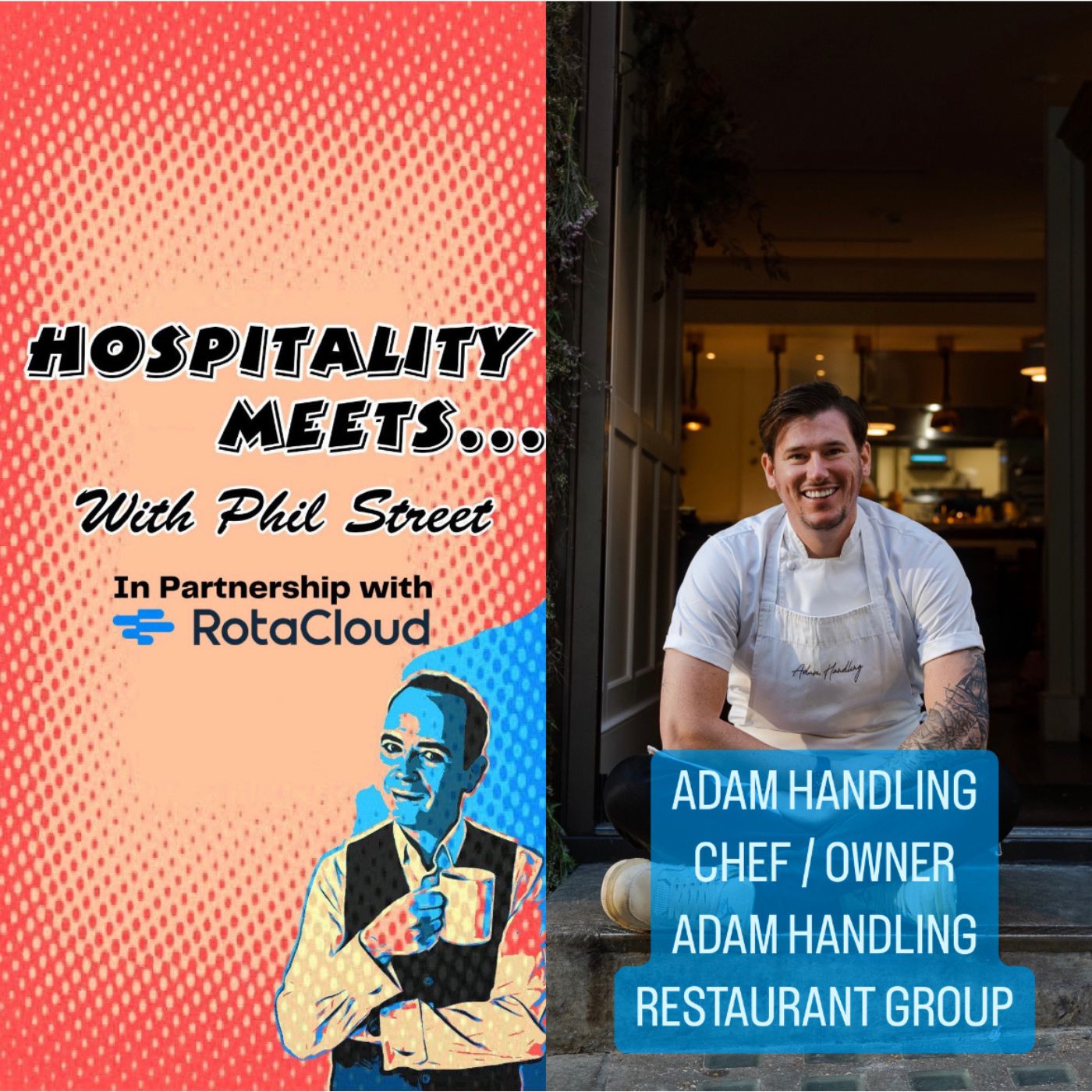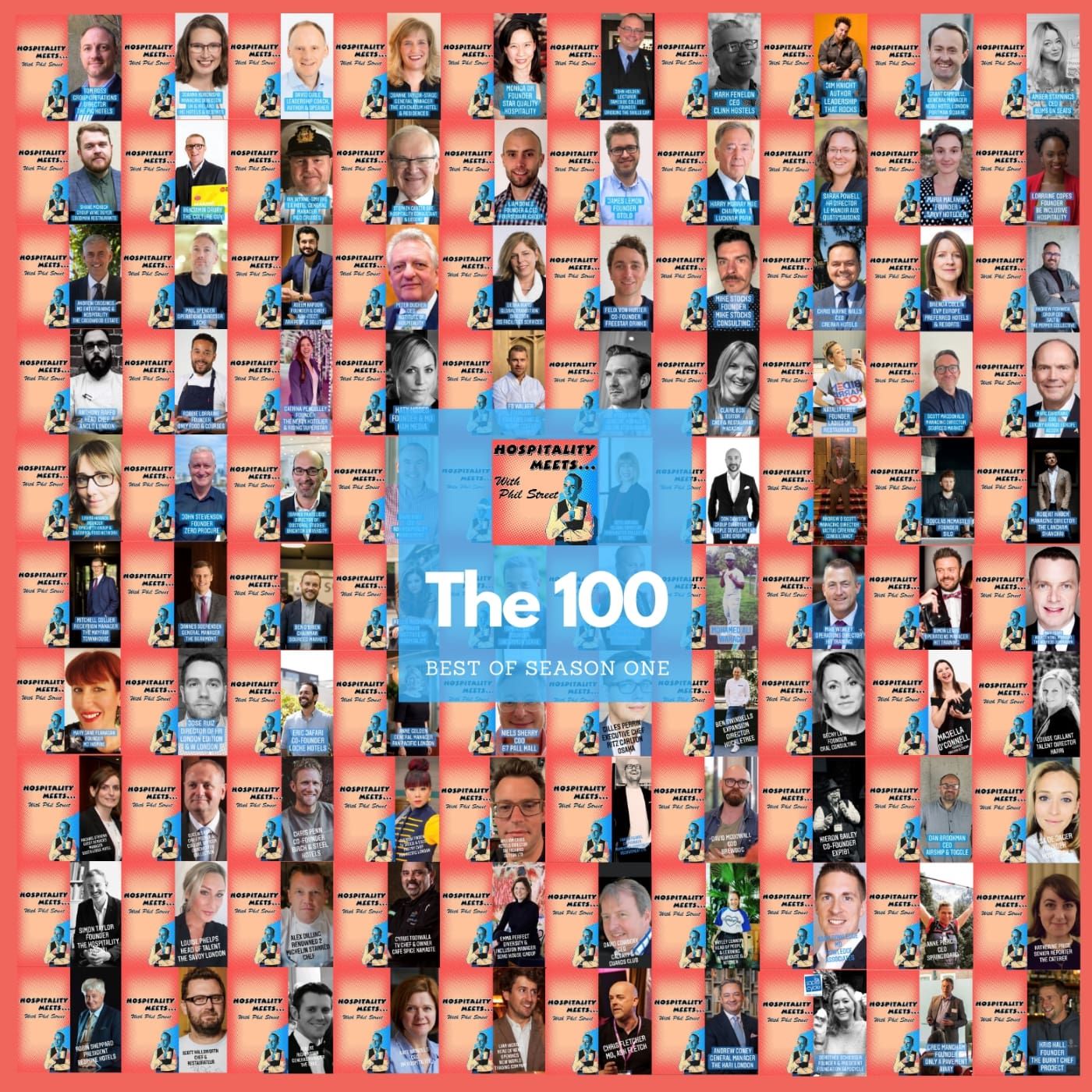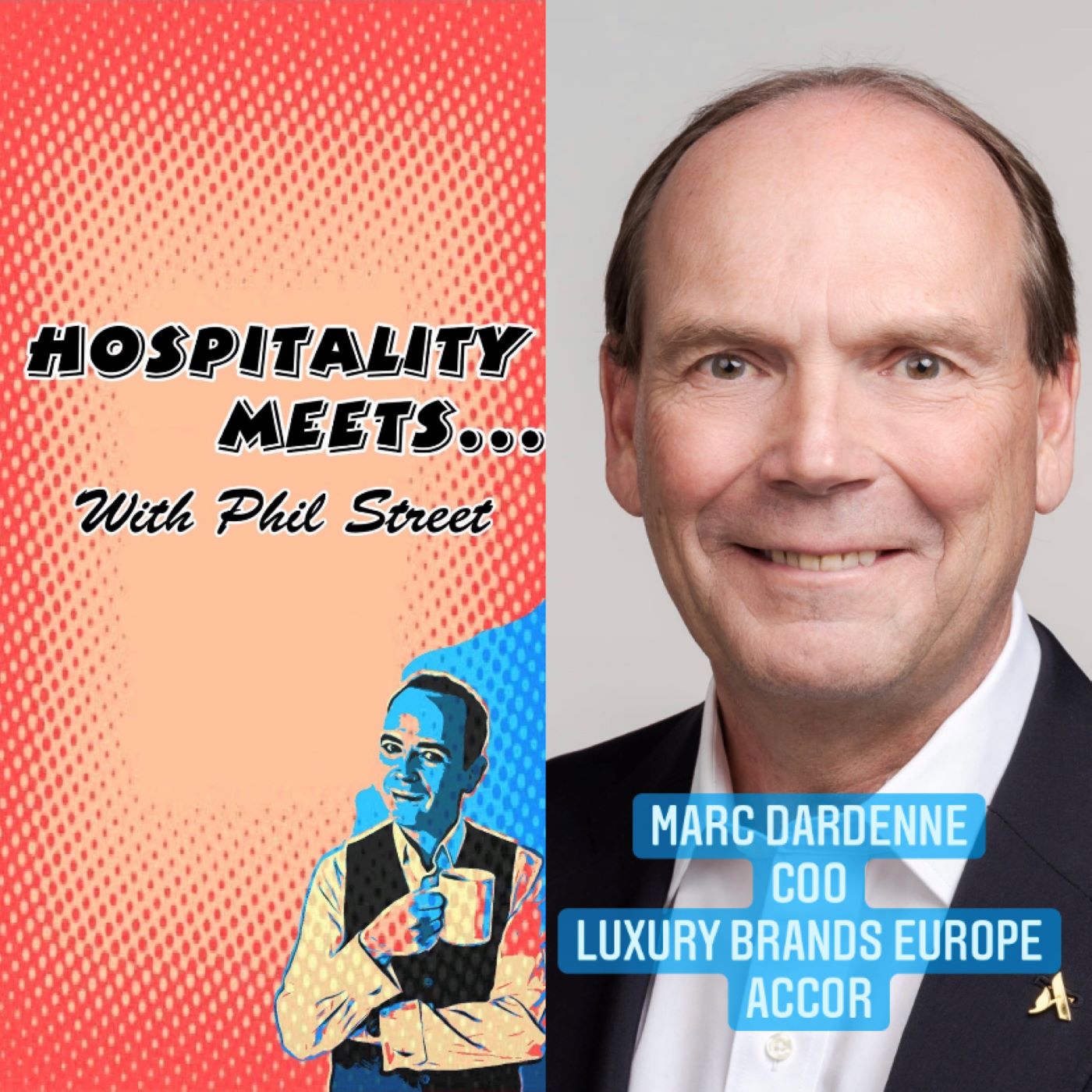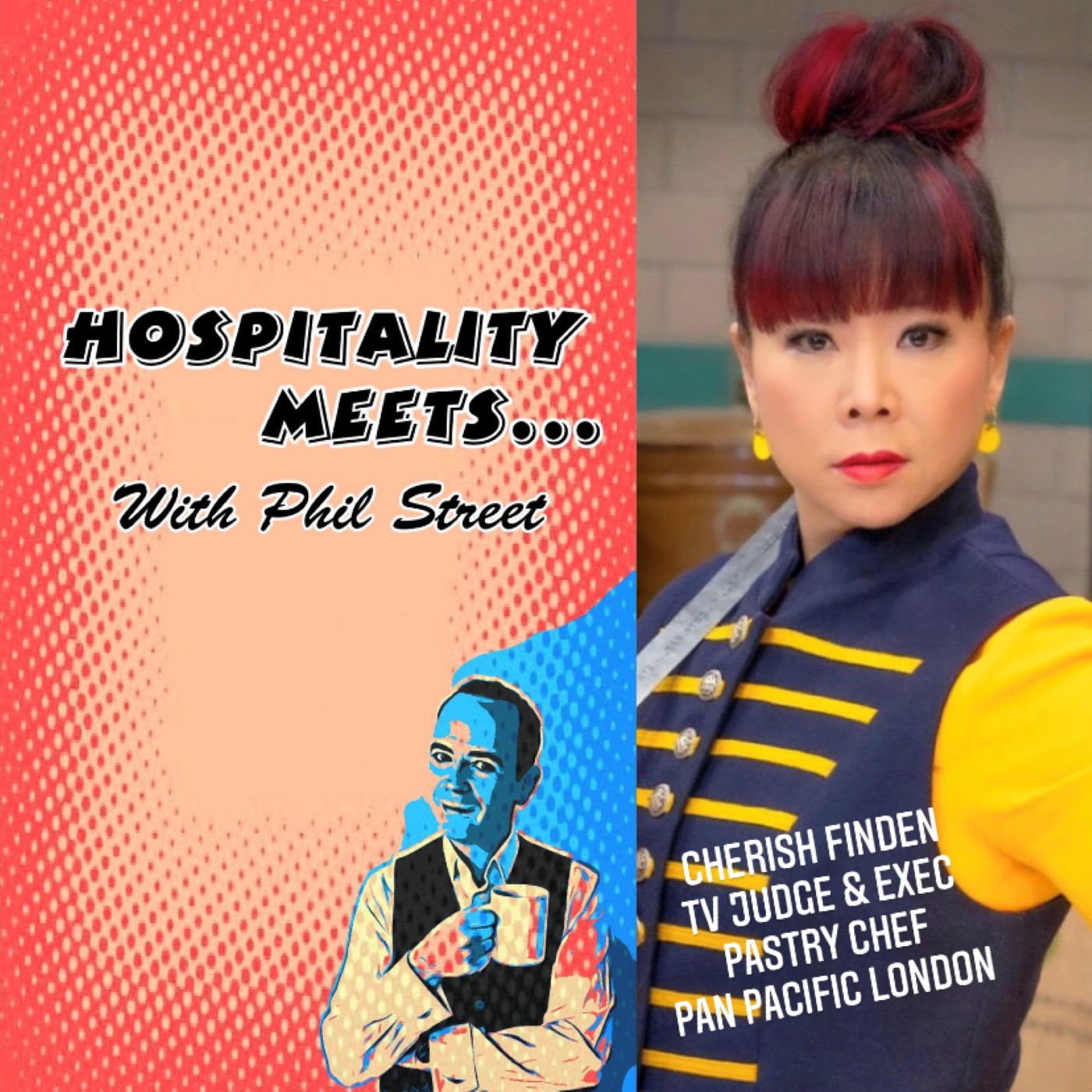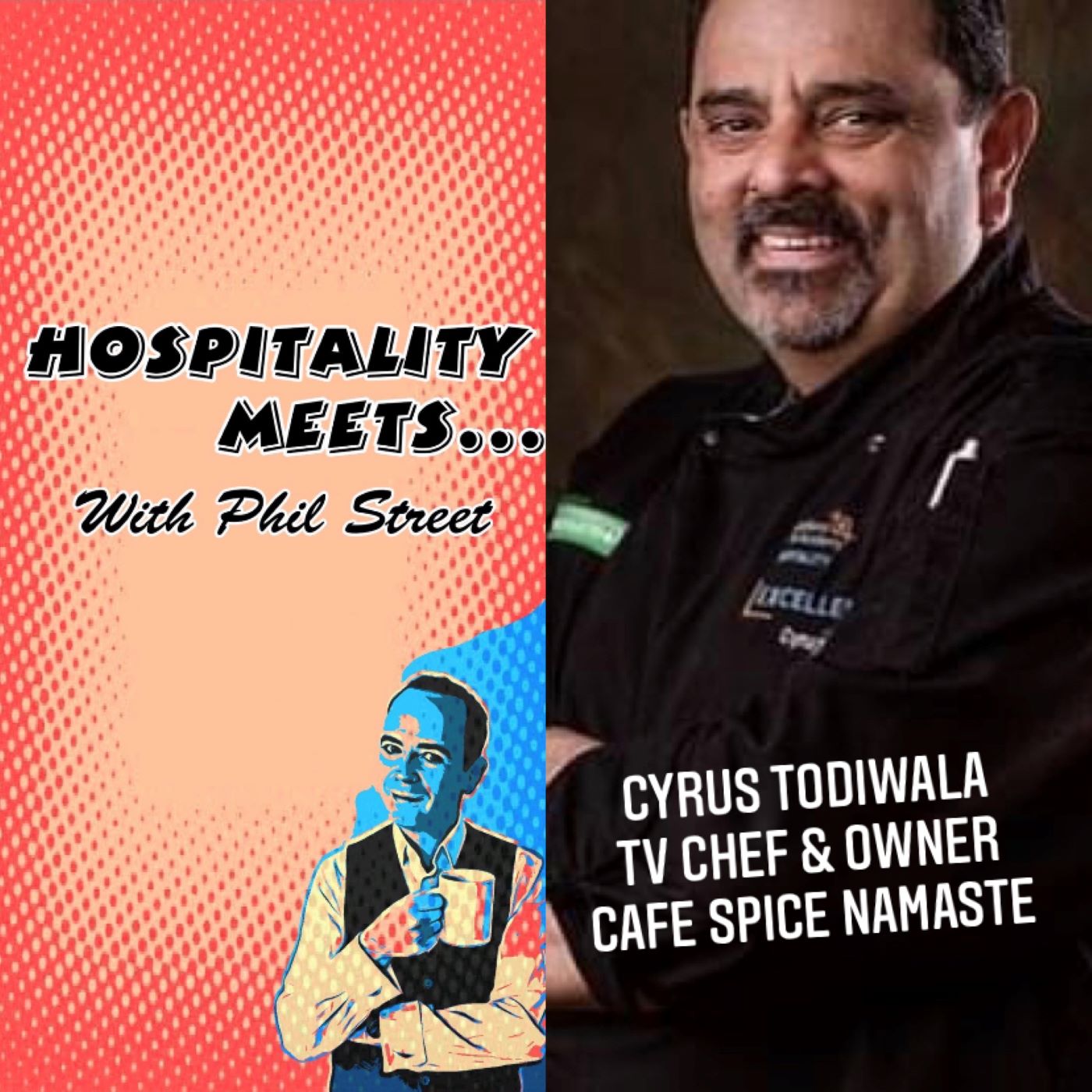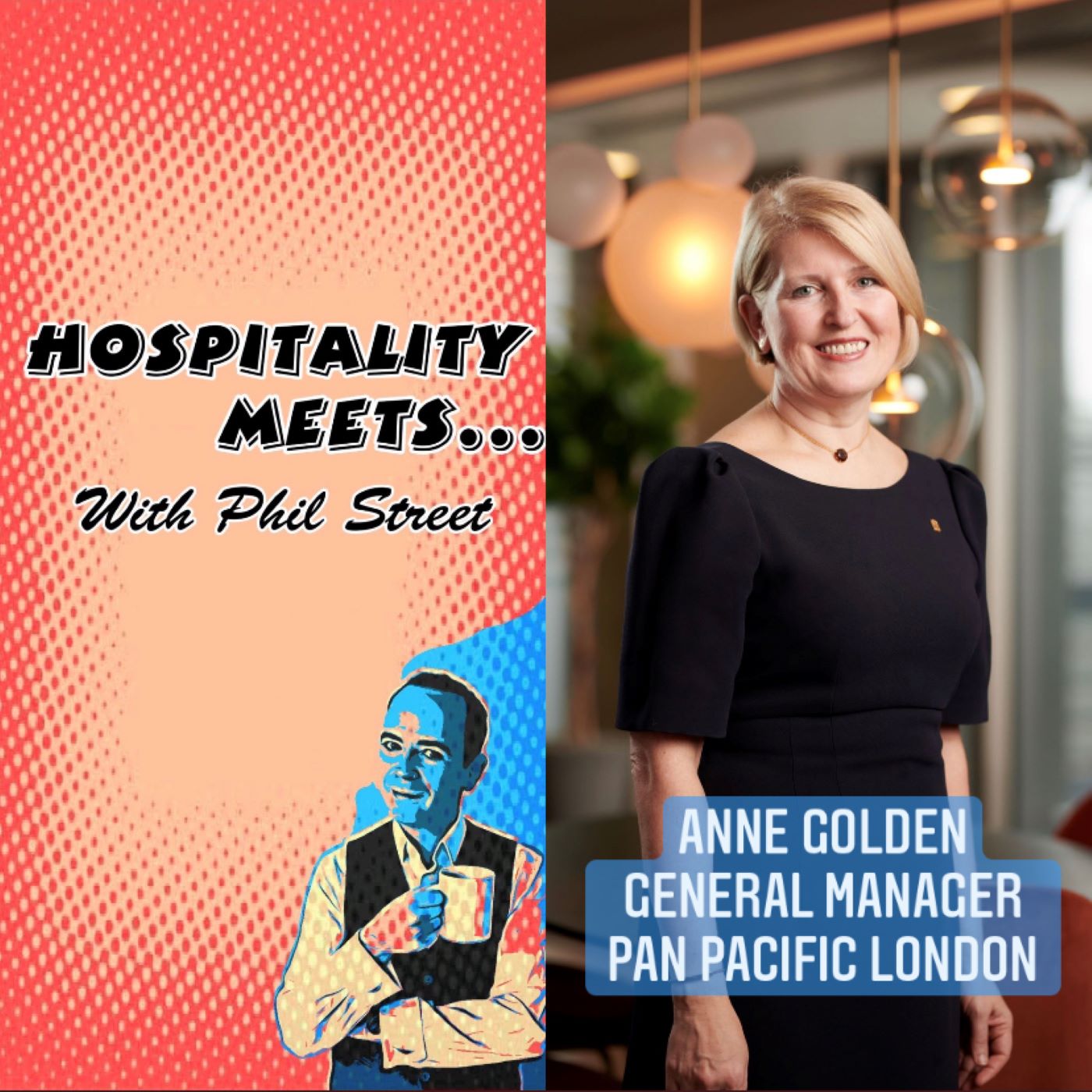#193 - Hospitality Meets Franck Arnold - Fuel from the Fail Forward

😂 Episode Summary: Have you ever wondered how you can meet Kiefer Sutherland, dodge recruitment woes, and still run one of the world's most historic hotels? Well, grab your aprons and notepads because Franck Arnold, MD of The Savoy, spills the beans (and maybe some champagne!) in this rib-tickling yet insight-packed episode. Spoiler alert: It's not all afternoon tea and cucumber sandwiches (Shame) 🍸
🗣️ Key Takeaways:
- Four-Day Fantasy or Reality? - Ever dreamed of a four-day work week? Franck reveals that some lucky souls in hospitality enjoy this with 10-hour days. Your weekends just got better!
- Travel and Triumphs - Like Franck, you may find that wandering through global hospitality hubs isn’t for everyone. But if London is your “happy place,” then you’re already halfway to Savoy success!
- From Culinary Curiosities to Grand Hotels - Franck’s journey began in a hotel school in Strasbourg. From a foodie's dream to managing global icons, his pathway is as diverse as the hotel menus!
- Fail Fast, Learn Faster - Franck’s mantra: Fail quickly and often for rapid growth. 😂 Turns out, the school of hard knocks has a pretty good curriculum after all.
- From Military Service to Michelin Stars - Who knew military training could translate to five-star service? Franck's time as a steward in the French Air Force proves that discipline can come with a side of luxury.
- Innovative Firsts at The Savoy - From electric lights to women smoking in public, The Savoy has always been ahead of its time. It's like the hotel version of a rock’n’roll rebel with room service.
- Youth Outreach & Celebrity Encounters - Want to recruit the next generation? Maybe letting them meet a celeb or two, like Kiefer Sutherland, might just spark their interest.
- COVID-era Creativity - How do you jazz up a historic hotel during a pandemic? Just ask Franck about seafood bars and jazz outlets named Solas. Necessity is the mother of delicious innovation!
- Gordon Ramsay & More – Partnerships for the Win - When you're in the hospitality industry, teaming up with brands like Gucci and chefs like Gordon Ramsay isn't just name-dropping; it's survival of the fanciest.
- Inclusivity and Diversity - A Recipe for Success - The Savoy champions diversity in hiring, proving that luxury and inclusivity can be the perfect mix.
- Savoy’s Snazzy Titles and Honours - It’s not all work and no play. The Savoy just bagged the Fairmont Hotel of the Year 2023 globally. Who knew being fabulous could be so rewarding?
🛎️ Big Takeaway: While you might not make millions in hospitality (But some absolutely do), the industry offers a treasure trove of personal fulfilment, global adventures, and, if you’re Franck Arnold, a reason to meet some pretty cool people along the way.
Enjoy!
The Guest
Born in Strasbourg, France, Franck Arnold has over forty years of experience in the hospitality industry. Initially trained as a chef, Franck began his hospitality journey by attending the Hotel School of Strasbourg (France), earning a Hotel Management and Culinary Arts degree, followed by a Masters in Hotel Administration from IMHI Cornell-ESSEC (Paris) and his M.B.A from Henley Management College (UK).
Franck has worked in luxury hotels in six European countries including 10 years in the UK, 10 years in the US and five years in Canada. He has worked for well-known luxury brands and independent hotels in North America and Europe including the IHG hotels, The Four Seasons Chicago, The Ritz-Carlton Toronto and The Balmoral.
He joined The Savoy in September 2020 with a clear vision to navigate the hotel through the global pandemic, remaining true to its heritage as the home of luxurious innovation in the UK. He leads an extraordinary team to create unique luxury hospitality experiences and memories for guests, with character and a dash of eccentricity.
When he is not working, Franck is an avid marathoner, cyclist, squash and golf player. He lives in London with his wife Salima, daughter Céleste and two sons Arthur and César, together with Schnauzer puppy Jules.
Instagram - @franckxarnold
LinkedIn - https://www.linkedin.com/in/franckarnold
The Sponsor
Today’s episode comes to you in partnership with RotaCloud, the people management platform for shift-based teams.
RotaCloud lets managers create and share rotas, record attendance, and manage annual leave in minutes — all from a single, web-based app.
It makes work simple for your team, too, allowing them to check their rotas, request holiday, and even pick up extra shifts straight from their phones.
Try RotaCloud’s time-saving tools today by heading to https://rotacloud.com/phil
This podcast uses the following third-party services for analysis:
Podcorn - https://podcorn.com/privacy
Phil [00:00:01]:
And a huge hospitality meets. Welcome to the MD of the Savoy. And actually, you've got another role now as well, as I understand it. Frank Arnold.
Franck Arnold [00:00:10]:
Yeah. Thank you very much, Phil. And thank you for giving me the opportunity to talk about our profession and our industry.
Phil [00:00:19]:
Absolutely. Very excited to have you on. You are, of course, at the helm of, I suppose, one of London's old ladies within the luxury hotel scene. Yeah, I mean, we'll come into that, actually, as we go through the fullness of your journey. But how is life and business at the Savoy at the moment?
Franck Arnold [00:00:40]:
Listen, Phil, first, it's not the old lady, it's one of the grand dames. This is a little nuance because the Grande Dame is still thriving. And, you know, we went through, like everyone else, we went through Covid, difficult times. Had to close twice. The hotel had never closed before, except for its renovation, 2007. So when I took over the hotel in September of 2020, we had not yet reopened. And, you know, like for a lot of other hotels, you know, a lot of our employees had left, had not come back, were not planning on coming back. And there was a lot of uncertainty still.
Franck Arnold [00:01:38]:
People dying from COVID and travel restrictions, meeting restrictions. But we reopened and we had to close four months later. To reopen five months later.
Phil [00:01:47]:
That was fun, wasn't it?
Franck Arnold [00:01:48]:
But at that time, you know, it gave us as well the opportunity to think differently and to do things they would normally otherwise wouldn't have done, such as creating a pop up in the Savoy court. We did a seafood bar and jazz outlet called Solas that we wanted to open for only two months. We kept it for five. We organized afternoon tea at home. So Savoy at home was launched. We created new partnerships. One was with Gucci, which celebrated its hundredth anniversary of the foundation of the House of Gucci. Why? Because his founder, Gucciu Gucci, actually was an employee of the hotel from 1898 to 1903.
Phil [00:02:42]:
Wow.
Franck Arnold [00:02:42]:
And this is where he was inspired by. By fashion, by beauty, aesthetics, luggage and clothing, etcetera. He went back to Italy and a few years later created and founded the House of Gucci, which became what it is today. So when they were celebrating 100th anniversary, we still were not able to open inside. So Gucci transformed all the Savoy court into a fashion show with classic cars. Watching the fashion show live in Milan at the Savoy, and then we transformed our royal suite. It became the royal suite by Gucci and launched a pop up store with them and created all kinds of other programs. So although it took time to get back on our feet because business gradually came back.
Franck Arnold [00:03:42]:
We were also able to bring the Savoy back with new offerings, such as the extension of our relationship with Gordon Ramsay, which we've had for 20 years at the grill. We extended that to the river restaurant and it's been very successful. Also transformed a former formal meeting space on top of the grill into another restaurant called 1890. Gordon Ramsay wanted to pay homage to Augustes Goffier, who started here in 1890, just a few months after the official opening of the hotel with Cesar Ritz. And he felt that we needed to do something. And he created this restaurant, which received its first Michelin star early on this year.
Phil [00:04:36]:
Yeah, I'd written that down because I think one of the fascinating things for me about a property like this, I mean, it's been such a stalwart for the London landscape for so long, is how do you keep it relevant? Like, how do you continue to evolve with the increase in competition is just ridiculous. Every year, more and more and more.
Franck Arnold [00:04:59]:
It is. It is.
Phil [00:05:01]:
So, yeah, I mean, I suppose it sounds like, in some weird way, Covid gave you the opportunity to think maybe a little bit creatively.
Franck Arnold [00:05:12]:
It did, because during COVID all ownership companies were bleeding cash. So when you arrive as the MD of the Savoy and say, oh, I need to renovate this, I need to launch that, etcetera, that's good idea. But there's no money.
Phil [00:05:32]:
Small detail.
Franck Arnold [00:05:33]:
It forces you to think differently and to find other ways to remain relevant and also to do things differently, such as creating new partnerships that we did with Gucci, Gordon Ramsay. Now we're going to launch to relaunch another staple of restaurants, of restaurant business in London, which is called Simpsons in the Strand, which closed for Covid. And we're going to relaunch that with Jeremy King. So that's a new partnership and it's yet another and wonderful, exciting offering. And we've got two giants of the restaurant world, british restaurant world, one with Gordon Ranzi. The other one was Jeremy King, who very successfully relaunched the old caprice into the Arlington and has got another restaurant called the park, which is going to open, I believe, very soon. And then the next project is Simpsons in the Strand by Jeremy King. And bringing this to life at the Savoy.
Franck Arnold [00:06:47]:
And this is where I had, you know, respectfully corrected you, when you say it's not, it's a grande dame. And the difference is that the grande Dame is still very much alive, notwithstanding its age. It's 135 years of age. However, it's still thriving. It's thriving. The results are excellent. The guest satisfaction scores are higher than ever. The profitability is higher than ever.
Franck Arnold [00:07:14]:
And you know that the Savoy is affiliated to Fairmont Hotels and Resorts, which is a group owned by the giant accor. And we had our annual general managers meeting last week in, actually two weeks ago now in Istanbul, and the Savoy was awarded the hotel of the year, the Fairmont Hotel of the year 2023, globally. So worldwide recognition. So how do we still compete with all these wonderful hotels that are opening? And, you know, there are a number of them, and it's continuous, it's not ending. There will be more, and there are other hotels which are renovating. So if you look at our competitive landscape, we have a new raffles, we have a new peninsula, there's another Mandarin, there will be a St. Regis, there will be a world of Astoria, there will be a new rosewood and other hotels renovating. And so you got the Ritz, you got Claridges, you got the Hotel Emery, who's just opened, and you name it and it's there and it's vivid, which is great for the destination.
Franck Arnold [00:08:32]:
It makes London still an extremely relevant destination for the international traveler as well as for the national traveler. It makes it continuously bring London back to life. Hence why we can't just stay and rest on our laurels and just hope that because we've got one of the biggest name in the industry worldwide, the Savoy name is just not enough to remain relevant. We need to challenge ourselves and we need to push the envelope, push the boundaries of what we've been doing so far, but without breaking the mold, without breaking the reason and the essence of what we're known for, which is extraordinary. British hospitality. However, if we just content ourselves with this past, we will gradually become irrelevant and disappear or be bought over or sold or etcetera. So in order to do that, we have to be conscious of a number of factors. Of course, the increase in supply in the marketplace is very important, and that's a fact.
Franck Arnold [00:09:45]:
So we're going to have to share the demand with more hotels, which are actually beautiful, gorgeous, very well built and operated. But we have to take into consideration the political environment. We have to take into consideration the fact that we have a very old hotel that needs to remain sustainable in the future. And sustainability is at the forefront of what especially the new generations are caring for. We need to take into consideration that tastes and preferences have changed, the society has changed, the society has become much more diverse than it once was, and therefore, we need to be much more inclusive in how we operate, not only with our staff, because our staff in hospitality always has been very diverse, but we also have to be conscious of how we target. And the market segments we target should not be solely focused on what we've been thriving on until now. We have to include more generations. We have to be cross generational.
Franck Arnold [00:11:05]:
We have to be much more diverse in terms of male, female. We have to be more diverse in terms of races and ethnic and nationalities and sexual orientation. We have to be. Or people with disabilities. We have to be extremely open to accept whoever wants to pay for exceptional service. We have to tell the world that we are very inclusive. It's in our nature. We employ people from very diverse background.
Franck Arnold [00:11:42]:
We employ people and we are very inclusive with all those irrelevant factors to hire the best people. What we are looking at in our industry is the raw talent, of course, some skills and experiences for certain roles and responsibilities. But other than that, I think we offer a platform for people who just love to be surrounded by people, for people who like to serve other people and draw energy from doing so and. And thrive in an environment which is very rewarding because we work in extraordinary places such as the Savoy. Every time I walk through the lobby, I'm energized by these walls and the stories. These walls are telling me so inclusivity, sustainability, innovation. And I just being a bit daring because we've got an older property, we have got to be there and we have the license to do so. If there is any hotel in the city that can do that, it's the Savoy, because since its inception, it has been at the forefront of innovation.
Franck Arnold [00:13:08]:
It was the first hotel fully powered by electricity.
Phil [00:13:11]:
Is that right?
Franck Arnold [00:13:12]:
Yeah.
Phil [00:13:12]:
Well, there you go.
Franck Arnold [00:13:13]:
It was the first hotel to have 40%, more or less of its inventory with ensuite bathrooms before bathrooms were shared by floor, by quarters, I don't know. But it was the first hotel because it is the original luxury hotel in London and one of the first in the world to truly come with and featuring Cesar Ricz and Auguste Coffee as the first hotelier and chef at the Savoye. Just next to our room, Phil, we've got the red lift. You know, the red lift. The red lift is called also the ascending room. And the ascending room was the first ever electric lift in London. Right? Yes. I'll show it to you on our way out.
Phil [00:14:00]:
Very good. Yeah.
Franck Arnold [00:14:01]:
So it is the first place where dinner dance was taking place. It's the first place where ladies were smoking in public or be seen in public without the company of Mendez. So we've got that in our DNA of doing things first and be always at the forefront of things. So it behooves us to maintain that is in our DNA. And we need to keep doing that, of course, with a level of caution, because we don't want to scare people off. We're never going to be a lifestyle hotel. We're never going to be. But we still.
Franck Arnold [00:14:34]:
We're always going to be the original luxury british hotel. And we have. But luxury comes with a trait of a twist, of something different, a bit of eccentricity, because we are quintessentially british. Even though I speak with my french accents, I'm an anglophile. I'm very attached to this country, and. But in my point of view, the british character also thrives because it's got all this established way of doing things, this conservatism, these traditions that are omnipresent everywhere, but yet always done with a bit of eccentricity. And that comes from the aristocracy to rock and roll. I mean, it is.
Franck Arnold [00:15:32]:
It is preeminent throughout society, and I think we need to keep that bit of eccentricity in order to remain relevant and true to who we are.
Phil [00:15:41]:
Yeah. Yeah. Do you think. Because please don't take this the wrong way, but, you know, I look at the way that you present yourself, you've got a bit of charm and eccentricity about the way your trousers are. Amazing, by the way.
Franck Arnold [00:15:55]:
Well, coming from someone with a slight scottish accent, I take that as a compliment.
Phil [00:15:59]:
Very much so, yes. Do you. Does that then mean were you kind of always, and we haven't even got into your story yet, but do you feel you were always maybe destined to be here because you're such a wonderful extension of what the Savoy stands for and what it is also trying to be, and the fact that it's not resting on what it has, it's always looking to push and use that little piece of eccentricity, because I think this is a question I find really fascinating with a lot of people that I speak to on the podcast. But just in day to day as well, is that sometimes it just feels like all roads lead here and that you were. You're supposed to be here and this is the job that you were supposed to be doing.
Franck Arnold [00:16:47]:
Yes. And I see this with confidence, because when I was approached by a headhunter in 2020, it was just the onset of COVID It was April or May of 2020, to know if I would be interested to move. I said, no, it's Covid, my hotel, it was the Ritz Carlton back then in Toronto, is closed. But I've got a great hotel, great team. I'm successful with the ownership company, with the staff, with the community. Just bought a house. My two sons have started university in Canada. There's no reason for me to move.
Franck Arnold [00:17:23]:
And she said, no, Frank, this is a game changer. Can we take you back to London? I said, well, I love London, but there are too many things happening in my life here that I can't just drop everything and change. I was driving to the hotel that morning and when I received that call and the headhunter told me, Frank, it's for the Savoy in London, as MD and regional vice president. And I put my foot on the brake, I stopped, I parked, pulled over, said, okay, let's talk. I knew at the time that, wow, this is. Yeah, probably meant to be somehow. And it just felt right. It felt right.
Franck Arnold [00:18:11]:
And because I had lived in the UK prior to that, before Canada, I had lived in Scotland for five years. I was running the Balmoral. And then in the nineties, I had spent two years in London, early nineties, as my first two years of management trainee with Intercontinental. So I had already lived for seven years in the UK before there. I was familiar with the environment. I was familiar with. Not so much with the hotel, a lot by reputation. I had come here once, but when I heard the Savoy, I said, you know what? I'm at the right age with the right experience to be doing that.
Franck Arnold [00:19:00]:
And so it felt right. It felt right. And, you know, during my conversation, I had many conversations, because it's a corporate structure with many brands and many levels, and it's an ownership structure with different companies, different people to decide, so many interviews, but it just felt right throughout. So when I started, I said, you know what? The hotel is not open. It's closed. It's Covid. The team is reduced, and we're going to bring back this hotel to the world. And that was my mission.
Franck Arnold [00:19:35]:
And as an MD of the Savoy, it feels like I'm a custodian of the legacy of, you know, what's been happening for the last 135 years, and I'm still here trying to do my best to make sure that when I leave the Savoy, it's in a better shape than I. Than I found it. Now, that's not difficult, because when I found it, it was closed. It's open then it's always in a better place. But I would say, compared with when it was operating before COVID I need to make sure that it's still relevant. And the fact that we've been recognized two weeks ago by Fairmont hotels and resorts, as the hotel of the year demonstrates that we've done a few things right.
Phil [00:20:19]:
Yeah, yeah, no doubt. We're kind of. We're doing your journey in reverse at the moment. You've already highlighted that you were in Canada before this, the Balmoral before that. But actually, I am going to do this properly now and take you all the way back to the beginning of your career. I'm sure we'll come back on to more stuff around the Savoy later in the, in the chat. But how did you get in to hospitality in the first place?
Franck Arnold [00:20:46]:
Well, I'm not like you, Phil. I was not born in hospitality. You know, I fell into it and I. How did I fall into hospitality is I was basically almost a high school dropout. I was in 11th grade. I didn't like what I was studying. I was not imagining myself becoming a lawyer, doctor, an engineer, or any other noble and recognized professions. And a friend of mine had started hotel school.
Franck Arnold [00:21:14]:
And I saw him going to school with his literally luggage, carrying his knives and his uniforms and his dress in his suit and a tie. At the age of 15, I said, what are you doing? What are you doing? Going to my school. I joined the hotel school of Strasbourg. I said, that's so cool. What are you going to do in life? What am I going to do? And at that time, cooking was something I really enjoyed doing. And I enjoyed languages. I was quite good at languages. I always wanted, I always imagined myself traveling the world in a way, and not that I had a, I was pretty, I had a rather privilege of bringing, you know, a very stable family environment, not rich, but comfortable enough to note needing anything.
Franck Arnold [00:22:06]:
But I always thought that I would, you know, I would leave my hometown, which is Strasbourg. And I, you know, I grew up just outside of Strasbourg. And I said, well, this is, this is exciting, what, you know, it really. I had a. And then I said, well, I think I would like to join that, to join this industry, because, you know, I've always been a fanatic of the english language, although I should have learned German, because I was raised and born in Strasbourg. Born and raised in Strasbourg, English was the language of rock and roll. So for you, it's normal because you grew up in English.
Phil [00:22:47]:
And did we take this space for granted, this language?
Franck Arnold [00:22:50]:
For me, it was the language of rock and roll. And my cultural icons when I was growing up were british and american, pop rock, and all sorts of music groups and bands that made me dream. And, you know, I used to remember, I used to learn the lyrics by heart. Not understanding what they meant, so I could, I could sing you hotel California without understanding what it meant.
Phil [00:23:18]:
I'm a big fan of Rammstein. I don't know if you know who they are, a big german heavy metal bandaid. Not a clue what they're talking about, but I love their music.
Franck Arnold [00:23:27]:
So for me, I could imagine myself traveling and even living in the US, in Britain, because to me, the excitement was there. It was not for me in France. And it's a beautiful country. And I go back, my family is still there, but I chose to be here, to live here. So anyway, I entered, I joined the hotel school, but I started, because I was almost a high school dropout, I started with the lowest level of culinary and service diploma you can do in France. But as I absolutely adored what I was doing and I worked, I did a stage and loved it. And before doing that stage and before joining, I remember being on holiday with my parents in the south of France, in Cannes. And in Cannes, you got a few very nice hotels, but I remember this particular one is the Carlton Hotel in Cannes.
Franck Arnold [00:24:32]:
And I was walking on the croisette with my parents and I stopped and I looked at this building, and that was the Carlton Hotel in Cannes. I said, wow, that's a hotel. One day I want to work. I said, that hotel. But it was that hotel, that luxury. I was looking at this gorgeous building, this facade, this grand arrival, the landscape arrival, the car arriving, the luxuries, these beautiful people, beautifully dressed, entering this grand palace hotel. I thought, wow, how cool must it be to work in the place like this? I remember this. I still remember this moment.
Franck Arnold [00:25:17]:
And I was 15, but you need that moment, right?
Phil [00:25:20]:
I mean, not necessarily.
Franck Arnold [00:25:22]:
For me, it was the vocation and the chance of falling into an industry I had no clue about, but loving it to the point where, you know, after my two years, most of my friends graduated, went to work as cooks, because I went to culinary first. But a few were offered the possibility to join the BAC, the technical baccalaureate, specialized in hospitality, and I was offered the possibility to do that. And again, I thrived and I continued. Then I did the diploma and this was more into management and etcetera, but still. And I did. I did a few internships, but my last internship when I was at the hotel school was in California. In California, I worked for a private golf club again with people living the life. And I just enjoyed working and delivering these services, working in a product and thing that was inspiring to me, with people who were inspiring to deliver excellence, to deliver quality and details and surprise and innovation, whether it was in the culinary hospitality first.
Franck Arnold [00:26:31]:
My first love was more restaurant food and beverage, which I still have. But then I discovered hotels and the room side. But then I had to do my military service. So I did my military service in France. I was in the air force and I was. Because of my. Because of my language and my training, I was offered the possibility to be a steward in the french air force, carrying generals and ministers in Paris. So I did that for one year.
Franck Arnold [00:27:03]:
Loved it. Absolutely loved it. But again, it was very natural. So it was quite scary to do a military service for a lot of kids who had not done anything with the discipline, but hospitality was very disciplined.
Phil [00:27:14]:
Well, we might be bringing it back here, apparently.
Franck Arnold [00:27:16]:
You know, you wear uniform, you know, you wear uniform, you cut your hair, you have to shave, you have to be on time. School of life and I was very, it was very. It was very comfortable for me, this environment. I actually loved it. And. But then I was. I had the chance to do a master's degree that was jointly coordinated by Cornell University and Paris Essex School of Business, which I did for a couple of years. I had the chance to work, to do my training in California.
Franck Arnold [00:27:47]:
No, that was yes, no, no. I did my training in Thailand this time around. And then upon graduation, most of my friends entered, joined into finance, marketing or support function, more than consulting or development, more so than operations. But I trained there to become a hotelier and I still wanted to work in two hotels. And back then, Intercontinental Hotels had the best program in the industry. It was one brand, it was 100 hotels around the world. It really corresponded to what I wanted to do. It was still luxury, it was international, it was global, and it was sponsoring an MBA at the same time.
Franck Arnold [00:28:33]:
So I joined Intercontinental and we selected for this fast track development program. And I started very quickly, briefly in Paris. I was transferred to London. I worked in Hyde Park Corner at the Intercontinental, worked in rooms, first in housekeeping for one year, then one year in front office. Lots of stories, lots of things. I think my first year in housekeeping, my first few weeks in housekeeping, I resigned almost three times. And I had this great mentor, Steven Masillo, who was a director of human resources, who was my mentor for the program. And he took me aside and said, frank, don't drop out now, okay, continue, because this is a moment of truth.
Franck Arnold [00:29:22]:
If you can survive that, you know, you've got all these studies and experience, et cetera, you're an f and B boy, but you need to do that in order to grow and to have a more complete picture of what hospitality is. And I had this very, very well known german executive housekeeper who was. I thought he was a demon and I was wrong. I was the one who was ill fitted and not adapted to what was expected out of me. Once I started to change, after failing, once I started to change, I started to succeed. And it was one of my most educational.
Phil [00:30:14]:
But isn't that just a great lesson for anybody listening at whatever stage you're at in your career? Because we've probably all been guilty at some point in your life or career of walking away from something because it's too difficult. But actually, if you persevere and push yourself through it, the learning, you get on the other side and then you kind of demonstrate to yourself that you're resilient and you can take on so much that comes your way.
Franck Arnold [00:30:45]:
My success, if we say I'm successful because I'm the emder of Savoy in this profession, is thanks to my failures. I started to fail even well, at about the time when I was considering dropping out of school, I was also quite good at tennis, so I was playing in the regional finals and I lost.
Phil [00:31:15]:
This is standard.
Franck Arnold [00:31:16]:
After having had too much points, I lost. It was a big disappointment, but I still feel it, I'm still hurting. And then school and then it's teenagehood and, you know, finding hospitality gave me a chance to really love, to love what I do and do what I love, which is in hospitality, being surrounded by people in beautiful settings and having the chance to change, to discover, to have always something exciting, not today being similar to the next one, it always brings its fair share of novelty. But that comes. And I attribute my success because, yes, I decided to change up with my family and move, etcetera, because first I wanted to, because I find that exciting. But also when I did that later on in my life, because I was a fast track trainee of intercontinental and I was read, was written, I would become a GM, etcetera. But you know what? I left Intercontinental to join four seasons. And at four seasons, the same thing happened.
Franck Arnold [00:32:35]:
I had a very legendary Gmdeh who I thought I could tame, not at all, and he could not tame me and I was ill fitted for what he was expecting from me and the relationship didn't last. And that was a tremendous blow because since I had started, I always had successful move, transfer, promotions, and then suddenly, boom, in your face, failure. I bounced back by taking a smaller property as a GM and had the chance to work for independent owners who trusted me with repositioning, transforming, renovating their hotel in Washington, DC, because that back then, you know, sorry I jumped. But within Continental, I moved from London to Athens to Brussels to Madrid to Valencia to. To New York, and in New York, I'm a hotel manager there two years, but I really don't. I'm not really the right person for Intercontinental anymore. I know I can do different things in different ways, but it had. Maybe it had lost the spirit that I joined 13 years prior, and four Seasons had that spirit, and I really wanted to join that.
Franck Arnold [00:33:56]:
And I was offered a position as a hotel manager in Chicago, which I accepted. Well, we moved to Chicago and I think everything's gonna be, you know, everything's gonna go well, et cetera. I'm the right guy, et cetera. It was difficult, and.
Phil [00:34:13]:
But that also probably shows, because four Seasons reputation as an employer, somebody to work for, somebody to work with, it's.
Franck Arnold [00:34:20]:
A great company exception to this date. I'm not blaming anyone else and myself for failing, but this failure, even though it was a dream to work for the company and to start growing within four seasons, it was a dream for me because I did not identify myself with my previous company. So when I joined, I thought, oh, yes, everything's going to go well. And it didn't go well. It didn't go well. I lost my job. I had to find another one. But that was a big failure, because that.
Franck Arnold [00:34:50]:
It's not only for your ego, because the ego, you take a blow and you know what? You know, get back on your feet and you get on with your life. But it's also the fact that, you know, at that time, I was a father of two young boys, and I didn't have a green card, so it had to be on a visa. Being in the US, it was not a comfortable situation at all. But what doesn't kill you makes you stronger. And I learned a lot of things. Despite the, you know, the short time I spent in Chicago with that, with that property, I learned a lot. And one thing was sure is that I still wanted to work in hospitality. I still wanted to continue working in luxury.
Franck Arnold [00:35:30]:
And at various times in my life, I was offered the possibility to step away to work for a winemaker in Bordeaux, another time to open a tennis academy in Lebanon, another time to open a restaurant in Paris. And I always said, oh, yeah, very interesting, very exciting. Why don't I do that, etcetera? And I always ended up saying, no, I think, you know what? I like what I do, and I'm going to stick to what I do.
Phil [00:35:56]:
Yeah, yeah.
Franck Arnold [00:35:58]:
But my career is defined by my career and true progress is defined by failure.
Phil [00:36:05]:
But I'm so delighted that you've said that. And I don't mean I'm delighted you're a failure. I don't mean it in that way, but because I think a lot of the time, and this was certainly one of the, I suppose, objectives of having conversations with people like you and as you quite rightly say, what people externally would perceive to be having huge success because you can't arrive as MD of the Savoy by luck. You know, that's, that's got to be a coming together of your capability, you clicking with the right people at the right time and all of that. Okay, that maybe that side of things is down to a little bit of luck. But actually the message of, I think so many business leaders talk about this, the quicker you fail, the quicker you'll rise, as long as you accept the learning that comes with the failure and not just dismiss it out of hand.
Franck Arnold [00:37:00]:
And say, that's right, luck is not, no, luck is not. I was lucky when I fell into this profession. I was lucky because I was not necessarily in the best time of my life, being a young teenager not knowing what he wanted to do in life, you know, not being okay at tennis, but not good enough to really make while I was a coach, but I did not imagine teaching tennis in my life. So falling into this profession was luck then progressing, that you need the character, the drive, you need to be willing to take some risk. If you don't take risk, you're not going to live. You are going to do, and you know, it's not. Taking risk is not for everyone. Changing country, changing city, uprooting your kids to other schools, etcetera.
Franck Arnold [00:37:58]:
It's taking a level of risk. But I found, well, we have one life, you know, I still, and every time we have an orientation program here, I say to the, to the orientees or newcomers, I say, listen, I remember, I remember very clearly the day I started my career officially after studying with intercontinental being in the first orientation program. And I remember like it was yesterday. But I'm now 57 and it's been many, many, many moons since that happened. And I can tell you life goes fast and we have one, I think we have one shot at it and therefore just take advantage of it. Do it, live it. Take risk, fail, jump back on your feet. It will bring so much more than just to choose something because it's a safe place.
Franck Arnold [00:38:59]:
So take advantage if safety is what you want. Yes, please do so. And you can be successful in hospitality as well, choosing one profession and sticking to it and staying true. We have got, we've got employees here who've been here for 40 years and they're still perfectly happy and they're still thriving, and that's fine. But for those who need a little bit of spice, you know, this is a profession that can give you spice, because even at the Savoy you enter, or any other hotel of this caliber, you enter and you can do so many different jobs. You can work in rooms in f and b, you can work in engineering, you can work in housekeeping, you can work in talent, culture, hr, you can work in finance, you can work in sales and marketing, in events, in so many professions that it's, and especially for those younger kids who are in a high school and quite clever, but not necessarily very academic to do or willing to do to go to university, but have got the right attitude, the right pedigree to enjoy serving others, to like the finer details of producing beautiful food, cocktails, guest rooms, amenities, experiences, love the fact of, you know, this is a very rewarding industry. And I think I told you just before we started the podcast that we have now, and we have embarked into a new program which is called adopt the school, which is an initiative that was launched in Manchester. Now, 36 hotels in Manchester have adopted a school which is the right level for us to be engaged in hospitality in order to raise the profile of hospitality in the british public, because to this date, it is not a noble enough profession in the eyes of many.
Franck Arnold [00:41:07]:
And I'm saying this because we're still struggling to recruit at the right level from people who were born and raised here. It's still a difficulty we have and that I think we are also guilty. The industry is guilty as charged because we have not made enough effort to talk about the industry and to speak about how exciting, how enriching, how versatile, how inclusive this industry is. And now we have also started this program here in London. We've got six luxury hotels who have adopted the school, and we have adopted the Hampstead school, located in Cricklewood, which offers us the possibility to speak and engage with these teenagers who may be in a position like I was 40 years ago and excited about the possibility of a world of exception and a world of experience in the world of happening such as hospitality. And I think we ought to do more. So we have adopted this school. We welcomed a group of 25, 30 kids last week, and it was wonderful to be in.
Franck Arnold [00:42:28]:
Some, you know, are not made for that. And you can see, you know, not interested. But there were five of them. You could see the sparks.
Phil [00:42:37]:
Yeah.
Franck Arnold [00:42:38]:
The spark in their eyes.
Phil [00:42:39]:
And that's five you didn't have when you woke up that morning, you know?
Franck Arnold [00:42:43]:
Absolutely. And you know what? The fact that we possibly inspired some of these kids say, oh, wow, this is a cool industry. We welcome celebrities. We welcome very well known politicians, actors, celebrities of all sorts. Yeah, we serve them.
Phil [00:43:01]:
Your post with Kiefer Sutherland sat at the bar the other night.
Franck Arnold [00:43:05]:
Yes, the other day. Two, three weeks ago, lingerie's whiskey. I had a nice, nice long chat with Kiefer Sutherlandhouse. See, I'm just. I'm just a hotelier. I'm the innkeeper on the Strand and I have the privilege of talking to a extremely well known, you know, actor, comedian, now musician, and this wonderful gentleman, unfortunately lost his very well known father, Donald Sutherland, two weeks ago. And that was a very sad moment. But those moments of this privilege, of course, and I won't do that every day, but, you know, I have the privilege, and other staff members, my colleagues, also have the privilege of interacting with very, very well known and successful people, but also with very normal people who are just coming to celebrate something extraordinary with us.
Franck Arnold [00:44:03]:
And in hospitality, we're going to be meeting people who've just recently migrated to the UK and who are working in. In our back of house departments, in housekeeping, because they still haven't developed enough knowledge of the language to go into other departments. So we are dealing with recent immigrants who speak little English to kings, queens and presidents and this, all that under one roof. And every day is a different day. Every day we do something different.
Phil [00:44:43]:
But even going back to what you said all the way back at the beginning of the chat around Gucci and the story around that, it's amazing when you look through lots of hotels, not just here in the UK, but around the world, who have been privy to that type of thing. Big deals are done under the hotel roofs. I remember I had Joanne Taylor stag on from the Athenaeum and she talked about the fact that ET was edited in that hotel, you know, and all of these things just happen as part and parcel of kind of your everyday life. But these are spectacular things in the world.
Franck Arnold [00:45:24]:
In the twenties, the first radio transmission from Britain to the US, from London to New York, this was co planned and organized between the Royal College of Engineering, Iet next door with an engineer called Marconi. You remember the Marconi engineer. And the Savoy as a place where it would happen, and the BBC coordinating the radio transmission, and that took place here at the Savoy. The first radio transmission with the Savoy band called the Savoy Orphans, a big band that was in residence at the Savoy. But so that's only a hundred years ago. And that was the first radio transmission. If you ask your younger audience, they don't even know what a radio is. They don't.
Franck Arnold [00:46:24]:
Yeah, but it's only 100 years ago when this kind of, you know, wave communication started. It's only 100 years old, and it happened at the Savoy. And so the place of things of the first, you know, when, you know, this is a very highly storied hotel, and many, many books have been written on it. Many films have been filmed here, and it's still to this date. You know, this is a great backdrop for. See how they run was filmed here two years ago. Oh, actually, it was filmed during COVID and featured two years ago. And it was a wonderful, you know, movie and film that.
Franck Arnold [00:47:13]:
That featured the hotel as a background for the. For the. The scene of the mousetrap, which is still being featured. It's the longest standing play in London.
Phil [00:47:26]:
The mouse tracks can't reveal the final. The ending. Yeah, that's. You're sworn to secrecy, aren't you? If you. If you go and watch that.
Franck Arnold [00:47:35]:
But so, so it's constant. It's constant of having surprises. Then you have a coordination. First you have the funeral of late, her Majesty the Queen, you know, and then for the funeral, you have heads of states staying, and one of them, you know, because it's public, I can talk about it. But President Macron of France was here with his wife and his security details. And so we have the chance of welcoming this caliber, the Prince of Wales, who is the patron of the Trust Foundation Tusk Foundation Tusk is a charity that takes care of preserving the biodiversity in Africa. And he's been the patron of this association, this charity for ten years. So I had the chance to welcome Prince William, who am I? This little guy from Strasbourg, you know, and I have the chance to warmly welcome royalty at the Savoy.
Franck Arnold [00:48:42]:
So now, and I'm not the only one, because a lot of the staff members were there, you know, when we received the Macron, we did a wall of, you know, welcome. So we had housekeepers, we had servers, we had cooks, you know, but then we have every day, you know, people celebrating weddings, people celebrating anniversaries, people coming to dine in one of our restaurants, you know, in the Savoy, the River restaurant, 1890, having breakfast here, afternoon tea or at the bar, the american bar, the Beaufort bar and soon at Simpsons in the Strand. So, yes, we do. Let's put it this way, especially in the hospitality in general, we serve and we welcome people, but in luxury hospitality, we had the good time people. We are the good time people. We are here to provide exceptional moments that hopefully are going to be remembered, are going to create memories and people will come back and back again to create new memories or relive old ones, I don't know, but that's what we do. And for those, and especially I'm thinking of people who, you know, who liked the idea of being surrounded and joined by, surrounded by people. And, you know, we, of course, it's, you know, it requires skills in the kitchen, requires skills in accounting and in marketing.
Franck Arnold [00:50:14]:
In the restaurants, it requires skills. But you can acquire those skills. Yeah, and you can acquire those skills and work in an environment. And, you know, I think we need to demystify the fact that, you know, the reputation hotel, the hotel industry has a reputation for. For exploiting people, not paying people. It's not true.
Phil [00:50:35]:
No, I agree.
Franck Arnold [00:50:36]:
It's not true anymore. Yeah, it used to be. When I started, it was. We used to work on split shifts. And you remember, you probably did the same. You worked on cruises.
Phil [00:50:46]:
I did seven days a week, but.
Franck Arnold [00:50:48]:
It was seven a week. You know, I remember doing my first stage when I was 16 and working in a palace hotel in the west of France. And, you know, I was coming for breakfast. And you worked, you started at seven. You worked until two. You had a break for 2 hours and you come back for late for evening service and it was one day off, not two. And that was exploitation. The industry had to change, and it did change.
Franck Arnold [00:51:11]:
Now, we do offer for certain people to work four days a week and they do 10 hours a day in terms of AIDS. And we organize it in a way that then there are four on, three off. People are paid around 30,000 pounds a year. It's not small feat. It's not a small money. Yes, life is expensive in London, but the industry has changed. The salary have been reviewed and changed and increased quite sensibly. So it's not an industry that pays badly.
Franck Arnold [00:51:44]:
It's an industry where you can get promoted, you can get transferred, you can change country city, you can work in the same city working for different hotels, different departments.
Phil [00:51:55]:
Yeah, yeah. And the opportunity has never been better. I mean, you know, the things are still moving forward. There's new things coming to market the whole time, not just in the luxury space across pretty much every area of the sector. So never has there been a better time to join and get going. And what I really, really love about your journey the most is that kind of almost this indication that, you know, I think we're all aware that school in its raw form is not for everyone. You know, not everybody can be engaged in that environment, but actually, what it comes down to in the end is finding the subject and finding the thing that makes you sing. That then leads to your interest enough to then go, yes, then you can excel in study.
Phil [00:52:43]:
Because actually, I'm really captivated by this. Excuse me, I might not be captivated by trigonometry and mathematics or anything like that, but I'm captivated by learning how to make people feel special in a professional environment. And when you realize that, I mean, literally, this is a cliche, but the world is your oyster with this industry, without question. And you're a case in point, worked all over the world to get to arrive here.
Franck Arnold [00:53:16]:
Yeah. And this is not for everybody either. It is for people who like to travel and to change environments. And, you know, I think moving from one place to the other is one of the most stressful events for a lot of people. So it's not a given. But if you're not afraid of, you know, packing your suitcase, even taking some time, your family with you, it's extremely rewarding. I wouldn't change. I wouldn't change what I've done.
Franck Arnold [00:53:55]:
I had the chance to live in different european countries, in the United States, in Canada, coming back to the UK, and now I'm in my happy place in London because it corresponds to who I am and what I want to be and where I want to be, but it's a possibility. And anyone who's really willing to have a bit of adventure and who is motivated by discover, by discovering new things and new people, I don't know many industries that can offer that. It's one of the only ones that offer this possibility to do and to thrive. You may not become very rich because for that, there are other professions that possibly would meet those requirements, expectations, but it's an industry where you can really be happy.
Phil [00:54:51]:
You can be rich in so many other ways.
Franck Arnold [00:54:53]:
Oh, that's absolutely, that's correct. Actually, this why I said happiness. It's being rich in so many other ways that are not necessarily material.
Phil [00:55:05]:
Yeah, absolutely. I'm eminently conscious of your time, and I'm very grateful for the time you've given the podcast today.
Franck Arnold [00:55:12]:
Thank you, Phil.
Phil [00:55:14]:
So much more that I'd love to talk to you about. Maybe we'll do a part two again.
Franck Arnold [00:55:17]:
Sometime in the future, if you wish. I'd be happy to do so. You know, I think we owe it to the industry that has given me so much. You know, I owe it to give back, you know, and to be more present and engaged in the form of lecturing at university or engaging with the schools at every level, I think, is what we must do in hospitality to continuously raise the profile and the bar.
Phil [00:55:45]:
Yeah, totally. And tell people the real message of the industry, not what the media would have you believe. They're always focusing on negative.
Franck Arnold [00:55:56]:
I fully agree, Phil. I fully agree. Let's continue the journey.
Phil [00:55:59]:
Yeah. Fantastic.
Franck Arnold [00:56:00]:
Thank you.
Phil [00:56:01]:
Thank you so much.
Franck Arnold [00:56:02]:
Thank you. Cheers.














